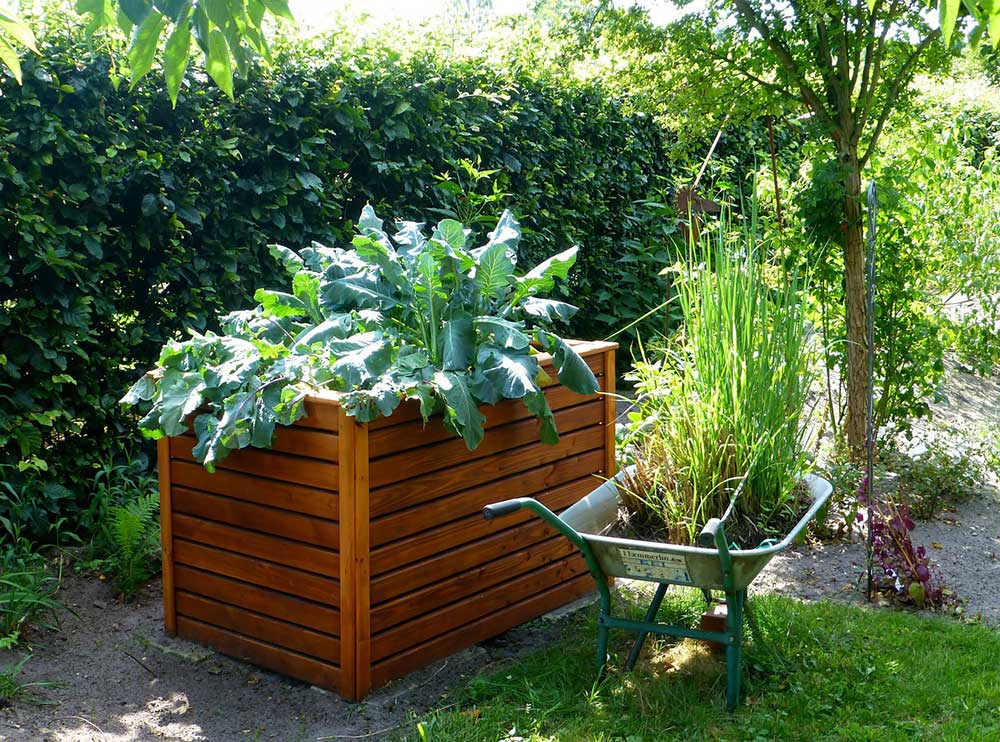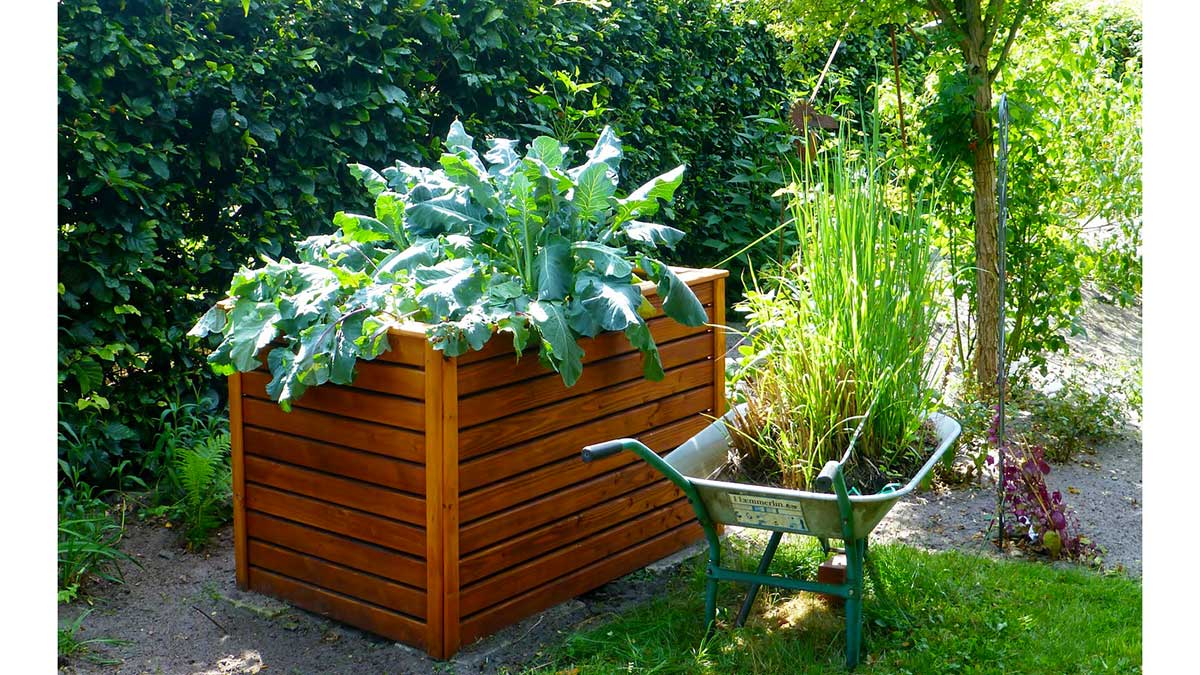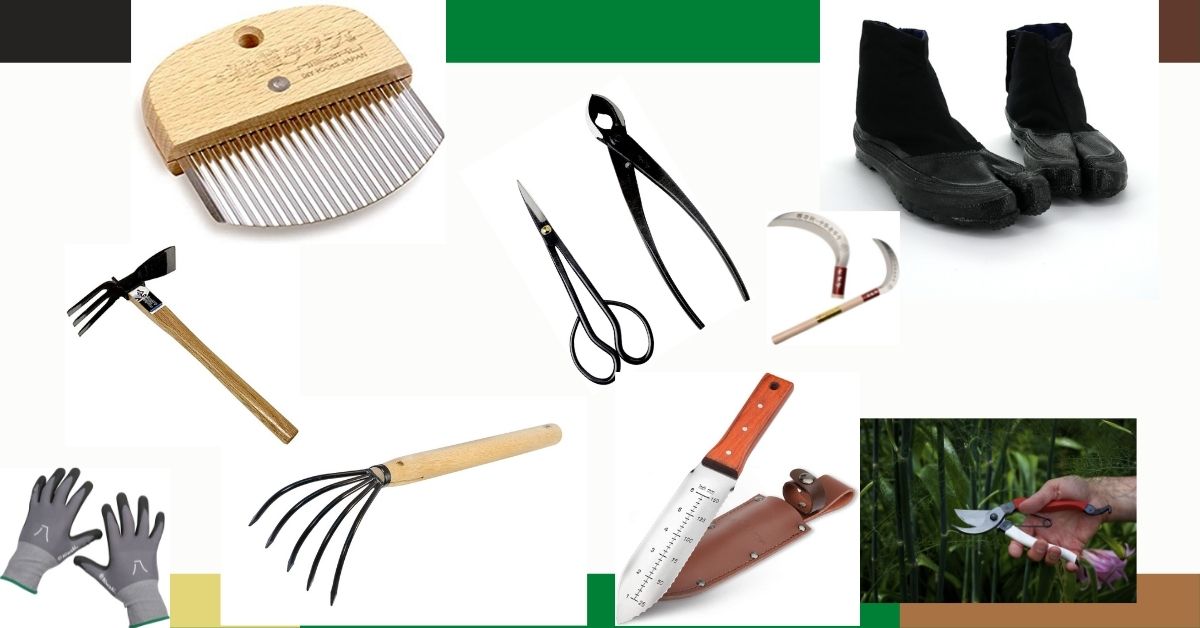The significant advantages of raised bed gardening made me believe them only when I tried it myself and saw the results. When I first began gardening in my lovely backyard, my idea was to enjoy the gardening itself, the simple joy of it, playing with the soil and plants.
So, no matter why you are planning to start your gardening life, for home grown-taste of vegetables full of nutrients, chemical, pesticide-free yields, or just the same reason as mine, you have an ignitor for your very own garden.
For people laboring in large-scale productions, traditional gardening has some advantages over other types when it comes to time/result performance; however, for homeowners who have limited place and consumption, raised garden beds more a preferable way of dealing with the job.
Here I’m talking about containers several inches above the ground. For building the containers, almost any suitable materials can be used, including wood, rocks, bricks, or even straw bales. As for dimensions, to reach each point easier, the front-to-back width shouldn’t exceed four feet, and the depth should be at least six inches.
Here Are Some Advantages Of Raised Bed Gardening for Vegetable Gardening

Meeting Desired Soil Needs
For healthy vegetable growth, the soil needs to be loose and friable to provide improved drainage and ventilation. Contrary to the native soil of your garden, which has more clay content causing tighter texture, poor drainage, and even more rocky structure, preventing the roots from reaching their maximum potential.
Using raised bed garden is a perfect cure for this problem.
Ability To Set The Soil Structure For Your Demands.
Using raised beds, you are able to improve the soil structure by setting it to the required texture, nutrient, and PH levels by your vegetable preference.
Suppose you are unlucky about the native soil quality like most of us, the benefits of using raised beds to improve the soil quality by mixing it with nutrients, composts, earthworms, and other organic components in large amounts. Adding nutrients to the soil in regular periods will keep the soil in perfect condition in all aspects.
Increased Yields – One of the other benefits of raised garden beds
One of the advantages of raised bed gardening is increased yields. With raised bed gardening, vegetables are planted closer compared to traditional gardening. Having improved quality soil with organic nutrients, raised beds will provide you with more plants and higher yields per squire foot.
As walking on the soil will cause soil compaction and damage the soil quality, raised beds will prevent this problem by letting you walk around the beds.
Maintenance Simplicity
Traditional gardens need extra care to deal with creeping plants all around, which means an additional redundant workload, while raised beds let those unwanted grass and creepers out of the beds. Obviously, this helps to keep healthy and continuous plant growth.
Besides this, to benefit from the advantages of raised bed gardening more, you can also install a walking path of rocks or other materials around the beds and place decorative pavers around to improve your overall landscaping while preventing those unwanted creepings.
Conclusion
Raised bed gardening is a great way to grow vegetables in your backyard, especially if you have limited space or poor soil quality. By using raised beds, you can control the soil structure, improve drainage and ventilation, increase yields, and reduce weeds and pests.
You can also customize the size, shape, and material of your raised beds to suit your preferences and budget. If you want to enjoy the benefits of raised bed gardening, why not give it a try this season? You might be surprised by how much you can grow in a small space.
FAQ – Raised Bed Gardening Advantages
Why are raised beds better for vegetables?
Because of the higher elevation of the soil, the beds warm up more quickly in the spring, which enables the growing season to begin sooner. Instead of being squandered on paths, fertilizers, organic matter, and manures are focused on the garden regions containing plant growth.
Are raised beds worth it?
Raised beds offer the benefit of permitting less weed penetration than in-ground gardens do, which is similar to how they prevent the invasion of pests. To begin, if you fill your raised garden beds with new soil that has been treated to prevent the growth of weeds, weeds are far less likely to develop within the raised garden beds.
Do weeds grow in raised beds?
Whether the beds are elevated by as much as several feet or as little as six to eight inches, elevation is not enough to prevent weed seeds from making their way into the garden. Weeds may sometimes emerge from the earth under the bed, but they can also be carried there by the wind or get there by some other method.
Does cardboard keep weeds from growing?
Both cardboard and mulch are efficient barriers that may be used to restrict undesirable weeds’ upward development. Both the cardboard and the dead weeds that are buried under it eventually decompose and contribute to the formation of nutrient-dense soil.
Can you fill a raised bed with just compost?
No, you should never use compost alone to fill a raised bed. This is not a good idea. When you are putting together a soil mixture for your raised beds, this component of your garden soil should make up between 30 and 50 percent of the total. Even though compost provides abundant nutrients for your plants, the soil will drain too rapidly, washing away the nutrients and causing your plants to perish from lack of nourishment.
What to put between garden rows to prevent weeds?
It’s best to place mulch. The use of mulch is an efficient method for combating the growth of weeds in gardens. A barrier of some organic materials that are applied in the form of mulch might be classified as “mulch.” Wheat straw, pine straw, wood chips, and sawdust are just a few examples of some of the more common types of mulch.
Can you use potting soil in a raised bed?
It is not possible to utilize soil from your yard or a garden bed in a container or on a raised bed since it is too heavy. Instead, you should use potting mix, often known as potting soil, which is a lighter and fluffier option. This should be used for containers. When gardening in raised beds, you should make use of soil that is somewhat denser and purpose-formulated for raised bed gardening.
How long do wooden raised beds last?
It depends much on the material that the raised bed is made of; the majority of gardeners choose cedar or redwood due to the inherent resilience that these woods have to rot and pest infestation. They have a lifespan of anything between 10 and 20 years when kept in pristine condition. However, other materials have a longer lifespan available.
Are cinder blocks safe for raised beds?
Cinder blocks are really made of concrete and may be purchased at any local hardware shop or home improvement center nowadays. If you are not working with vintage cinder blocks, there is no cause to be concerned about, and this is particularly true when utilizing cinder blocks to grow vegetables in a garden.
Are metal-raised beds better than wood?
Increasing numbers of people are opting for raised garden beds made of metal. They are up-to-date, fashionable, and remarkably long-lasting. In contrast to wooden raised beds, metal raised beds will not decay over time, will not expand and shrink with moisture, and will not need much maintenance. Having said that, raised garden beds made of galvanized steel are an excellent alternative for very damp areas.


